Iran's FM Spokesperson: Syria's neighbors must see terrorism as a borderless threat
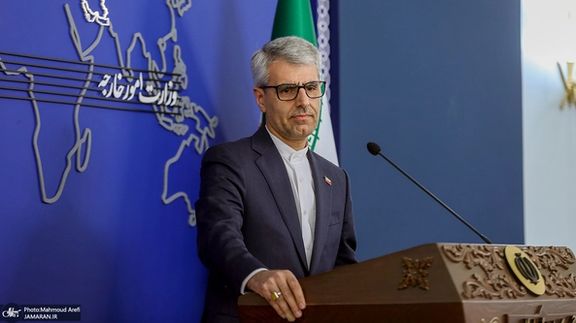

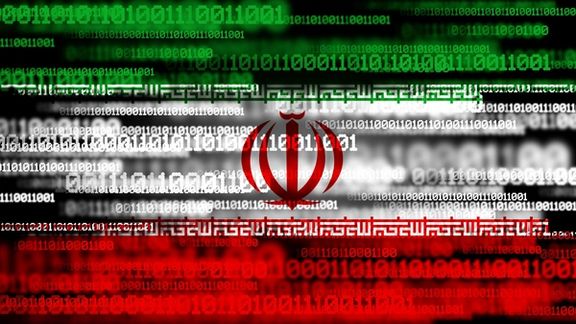
Israel's internal security service Shin Bet assesses that Iran is behind more than 200 phishing attempts against senior Israeli officials, according to a report in the Times of Israel.
The scope of the targets was not limited to political figures, the newspaper reported citing officials from the agency, it allegedly also included Israeli media personalities, journalists and academics.
Shin Bet said the hackers approached their targets on WhatsApp, Telegram and email by trying to get them to download an app that would reportedly give Iran access to their devices.
Once the devices were hacked, the personal information that would have been obtained could have been used to carry out attacks against individuals inside Israel through local agents Iran allegedly recruited, the Shin Bet officials said.
In one case a hacker posed as Israeli Cabinet Secretary Yossi Fuchs, allegedly telling targets he was coordinating a meeting with Prime Minister Benjamin Netanyahu.
Last month Israeli police said they arrested seven Israeli citizens accused of being part of a spy network gathering information on Israel's military bases and energy infrastructure for Iranian intelligence.
In September, an Israeli citizen was arrested on suspicion of being involved in an Iranian plot to assassinate Netanyahu and other top officials.
Shin Bet said the individuals reportedly targeted have all been briefed.

Iranian president and his Russian counterpart discussed the situation in Syria during a phone call on Monday with both leaders expressing their commitment to supporting the Syrian government amidst escalating rebel offensives.
“The focus was on the escalating situation in the Syrian Arab Republic,” the Kremlin said, adding that “unconditional support was expressed for the actions of the legitimate authorities of Syria to restore constitutional order and to restore the political, economic and social stability of the Syrian State.”
Russia and Tehran reaffirmed their support for Syrian President Bashar al-Assad following significant territorial losses to rebel groups, including Hay’at Tahrir al-Sham (HTS) and the Turkey-backed Syrian National Army.
Kremlin spokesman Dmitry Peskov said Monday, “We continue to support Bashar Al-Assad. Contacts are continuing at the appropriate levels. We are analyzing the situation and a position will be formed on what is needed to stabilize the situation.”
President Masoud Pezeshkian also reaffirmed Iran’s readiness to bolster Syria in what he called combating terrorism.
“The Islamic Republic is ready to provide all kinds of support to Syria to eradicate terrorism and thwart the goals of its sponsors,” he said during a during a phone call with Bashar al-Assad on Monday.
Meanwhile, Iranian Foreign Minister Abbas Araghchi met with Turkish Foreign Minister Hakan Fidan in Ankara to discuss Syria.
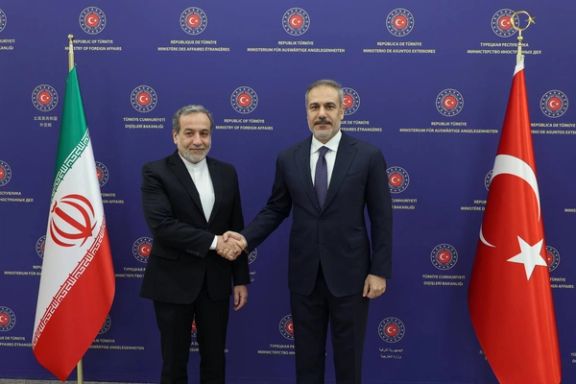
Araghchi acknowledged differences with Turkey over its backing of the Syrian National Army but emphasized a commitment to dialogue.
“We have decided to engage in closer discussions to collaboratively manage the regional situation toward peace and stability,” Araghchi said.
Fidan also expressed readiness to mediate between the Syrian government and opposition factions. However, he maintained that the Syrian conflict stems from unresolved issues over the past 13 years.
Rebel advances and humanitarian concerns
The UK-based Syrian Observatory for Human Rights reported 446 deaths over five days of intense clashes in northern Syria, including 244 rebel fighters, 61 civilians, and numerous Syrian army personnel.
Airstrikes conducted by Syrian and Russian forces targeting Aleppo and Idlib were blamed for the majority of civilian casualties, with several children among the dead.
The official Syrian news agency SANA confirmed that Russian and Syrian airstrikes in Aleppo’s eastern countryside had killed dozens of insurgents.
Assad has vowed to crush the rebels, describing the coalition of HTS and other groups as a threat to Syria’s sovereignty.
Regional and international reactions
Israel has been closely monitoring the developments in Syria. IDF spokesperson Rear Adm. Daniel Hagari said Monday that the military has observed Iran sending reinforcements to Syria.
He warned that Israel would act to prevent arms transfers to Hezbollah via Syrian territory.
“We need to make sure that we are not threatened. We are a sovereign country and we will make sure that Iranian weapons are not smuggled to Hezbollah,” he added.
“Hezbollah was defeated in the campaign and it is necessary to make sure that it does not receive weapons from Iran through Syria.”
Israel’s Foreign Minister Gideon Sa’ar earlier said that his country does not want to take sides in the Syrian conflicts.
"There is no good choice between the Syrian regime and the jihadist rebels," he said Sunday.
On the other hand, Iran’s ministry of foreign affairs blamed the US and Israel for exacerbating the situation in Syria.

Discussions to lift sanctions on Syria’s long-time president to lure him away from Tehran are underway between the US and UAE, according to Reuters.
Leaders from the two nations have been in discussions for several months, according to the report, long before last week’s offensive which saw rebel Islamist groups take control of Syria’s second city, Aleppo.
The talks aim to cut Syrian President Bashar al-Assad’s ties to Tehran, and help stem the flow of weapons to Iran’s ally Hezbollah in Lebanon through Syria.
This development comes ahead of the potential expiration of US sanctions on Syria, known as the 'Caesar' sanctions, on December 20, and amid Israel's ongoing conflict with Iran’s allies—Hamas in Gaza and, until last week’s ceasefire, Hezbollah in Lebanon.
The UAE, which branded the Muslim Brotherhood a terrorist organization after the Arab Spring in a bid to crack down on Islamic extremism sweeping the region, has been playing the diplomatic card with Syria for the last two years in a bid to bring the long-serving leader to the table.
In 2022, Assad visited UAE for the first time in 11 years, and before the Arab League reinstated his membership, as back door diplomacy began to take a more public role.
However, the talks could still stall if Syria decides to exploit potential Iranian support for a counter-offensive in the face of possibly the biggest threat to Assad during his rule.
Groups of Iran-backed militia have entered Syria from Iraq as Iran fears losing its grip on the country which is a critical smuggling route for weapons to Hezbollah in addition to acting as an outpost for the Islamic Revolutionary Guards Corps.
There has been no official comment on the developments, but the UAE’s official news agency said President Mohammed bin Zayed spoke to Assad on Sunday, expressing support for Syria, urging a peaceful resolution.
In 2011, the US placed heavy sanctions on Syria after Assad crushed protests against him during the Arab Spring. Those got tougher as time went on, including in the wake of the 2013 chemical weapons attack in which the Assad government launched rockets carrying the deadly nerve agent sarin into the Ghouta district of Damascus, killing more than 1,400 people.
The US placed Syria on its inaugural list of state sponsors of terrorism 45 years ago in the wake of the 1973 War when Washington was unable to woo President Hafez al-Assad away from Palestinian extremist groups and toward Arab-Israeli peace.
The Trump administration sanctioned 113 members of government in the six months after the Caesar sanctions were implemented in June 2020, all of which were subject to mandatory secondary or derivative sanctions against regime facilitators. The Biden administration has only designated a handful but with Trump’s return, a revisit of the sanctions could be likely.
In September, David Adesnik from the NGO Foundation of the Defense of Democracies, the FDD, said “the Biden White House opted for a policy of quietly encouraging Arab allies to normalize relations with Assad, which culminated in Syria’s readmission to the Arab League in 2023. Biden’s policy included token enforcement of the Caesar Act, which led to bipartisan criticism from Congress.”
The chairman of the Senate Foreign Relations Committee, Sen. Ben Cardin (D-MD), proposed a late amendment to the National Defense Authorization Act on September 11 that included a four-year extension of Caesar Act sanctions on Assad's government while expanding the criteria for designation under the act.
In an analysis, Adesnik said: “Though Cardin’s amendment signals bipartisan support on Capitol Hill for expanding sanctions against the Assad regime, it also includes problematic wording that could create unintentional but broad loopholes in the full range of US sanctions on Syria. Congress approved the Caesar Syria Civilian Protection Act of 2019 by overwhelming margins.”
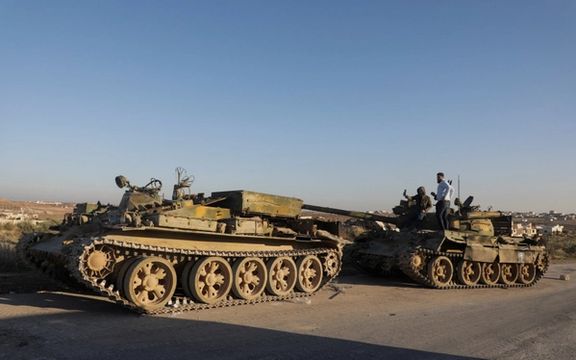
As Syria’s political stability crumbles amid civil war in one of the biggest threats to President Bashar al-Assad since he took power in 2000, Iran-backed militias entered Syria overnight from Iraq.
Ready to support Assad's forces battling Islamist insurgents, they were heading to northern Syria according to Reuters, who spoke to two Syrian army sources.
Chris Doyle, director of the Council for Arab British Understanding in London, told Iran International: “The whole situation is extremely fluid but Iran will be sure to shore up its position as it’s very conscious of losing ground across the region after Hezbollah has been politically and military degraded.”
In recent months, Israel has taken out swathes of the group's leadership in targeted strikes as well as at least 1,500 operatives in two days of synchronized explosions of the group's pagers and walkie-talkies.
Reuters reported that dozens of Iran-aligned Iraqi Hashd al Shaabi fighters from Iraq also crossed into Syria through a military route near Al Bukamal crossing.
"These are fresh reinforcements being sent to aid our comrades on the front lines in the north," a senior Syrian army source told Reuters, adding the militias included Iraq's Kataib Hezbollah and Afghan Fatemiyoun groups sent by Iran.
Doyle noted that this aligns with Iran's typical approach, leveraging its regional allies to bolster its influence and support.
“They prefer to do that than use uniformed Iranian military,” he added. “It will be a contest now between regional actors such as Iran and Turkey, Russia and the US and Israel. What will get lost in this is the agenda of the Syrian people.”
During the Syrian war, along with Russia, Iran sent thousands of Shi'ite militias to support Assad. However, the attack by multiple Islamist groups in recent days has shown the void left, resulting in the Syrian army retreating from Aleppo, where Iranian-backed militias led by Hezbollah, had a strong presence.
“The Syrian regime has been in close contact with the Iranians and it will want to recapture Aleppo. It’s negotiating by fighting, trying to change the front lines which were frozen for five or so years, to suit your allies and regional interests.
"Turkey has an interest in trying to push back against the Syrian regime and the Kurdish groups, and Iran will want to shore up Syria because it won’t want to lose out to external powers. Iran’s interest is maintaining the corridor from Iran to Lebanon and not having that interrupted by losing control and influence in Syria," Doyle said.
Amid the war in Gaza and ground offensive against Hezbollah in southern Lebanon, recent months have seen Israel step up its strikes on Iranian bases in Syria.
On Sunday, Israel forced an Iranian Mahan Air plane suspected of containing weapons for Hezbollah and destined to land in Syria to U-turn after an Air Force operation saw fighter planes circle the plane, according to Israel’s YNet.
It comes amid the US-France-brokered 60-day ceasefire between Israel and Lebanon’s Hezbollah, Iran’s largest regional ally. Israel has vowed that any efforts to rebuild and re-arm would be met with force.
The Iranian plane forced to turn around was in Syrian territory, believed to be delivering weapons for Hezbollah, which uses Syria as one of its major smuggling routes.
In the ceasefire agreement, it was stated that "the US is committed to cooperating with Israel to curb Iran's destabilizing activities in Lebanon, including preventing the transfer of weapons, affiliates and others from Iranian territory”.
In spite of the ceasefire, both sides continue to claim violations, with the Israeli military having carried out multiple air strikes on terror targets since last week.
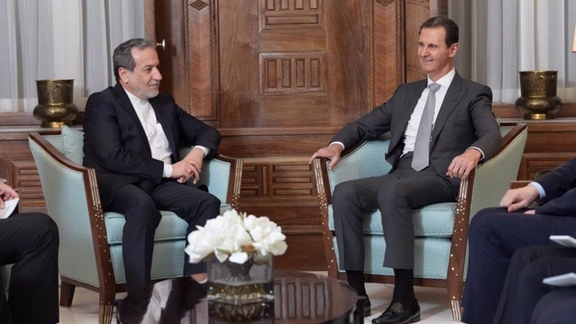
Iran's foreign minister met the Syrian president in Damascus on Sunday to express Tehran's continued support for the Bashar al-Assad government in the wake of Aleppo's swift capture by armed rebels.
"The Islamic Republic will insist on its principled stance to fully support the Syrian government, nation and army in the fight against terrorism and safeguard regional security and stability," Abbas Araghchi said in his meeting with Assad.
Assad, in turn, thanked the Iranian foreign minister for his "meaningful" visit to Syria under the current circumstances, according to Iran's readout of their talks.
Following the meeting, Araghchi told reporters that the two sides discussed "the details of the support Syria must receive."
"I conveyed Iran's message of support for Syria and for Bashar al-Assad himself... It is natural for the situation to be difficult, but the courage and spirit of the Syrian president were admirable," he said, adding that they had reached "good understandings."
Iran has played a major role in the Syrian civil war, aligning itself with Assad's government against various opposition groups since the conflict began in 2011.
Tehran provided substantial military support, including advisors, ground troops, and militia fighters from across the region, helping Assad win back much of the territory his forces had lost by 2020.
Between the March 2020 Idlib ceasefire and late 2024, frontline fighting mostly subsided. However, the recent capture of Aleppo by Hay'at Tahrir al-Sham (HTS) and its allied groups may convince Tehran to reinforce the Assad government again.
"Whether Iran will send forces to Syria again, similar to what it did in the past, depends on future circumstances and the decisions of the country's senior officials," Esmaeil Kowsari, an IRGC general-turned-lawmaker who sits on the Parliament's national security and foreign policy committee, said on Sunday. "However, the Resistance Front will definitely become active in Syria."
The Resistance Front refers to the alliance of armed militant groups sponsored by Iran, including Hezbollah, Hamas, the Palestinian Islamic Jihad, Houthis in Yemen, and Iraqi Shiite militias. For now, Hezbollah and Iraqi militia seem to be the only forces who are positioned to join the Syrian government's fight against rebels.
Iran rallying regional support for Assad
Iran's President Masoud Pezeshkian on Sunday had a phone call with Iraqi Prime Minister Mohamed Shia Al-Sudani, during which he expressed Tehran's preparedness for cooperation with regional states in the fight against armed rebels in Syria.
"These kinds of events are part of the sinister plans of the Zionist regime (Israel) to promote insecurity, discord, and conflict within Islamic countries. This issue has made the alignment and joint efforts of the Islamic Ummah to prevent the spread of terrorist trends in the region an essential task," Pezeshkian said in the phone call.
Earlier in the day, he had urged Islamic countries to intervene in Syria to prevent further internal conflict, saying that they should not allow this conflict within an Islamic country to persist.
Next stop: Ankara
After meeting Assad and dining out in a restaurant in Damascus in an apparent message of calm in Syria, Araghchi left Damascus for Ankara to discuss the Syria developments with Turkish officials.
Turkey is known as a key supporter of Syrian rebels who have captured Aleppo over the past few days, and had given a green light to the offensive, Reuters reported citing opposition sources in touch with Turkish intelligence.